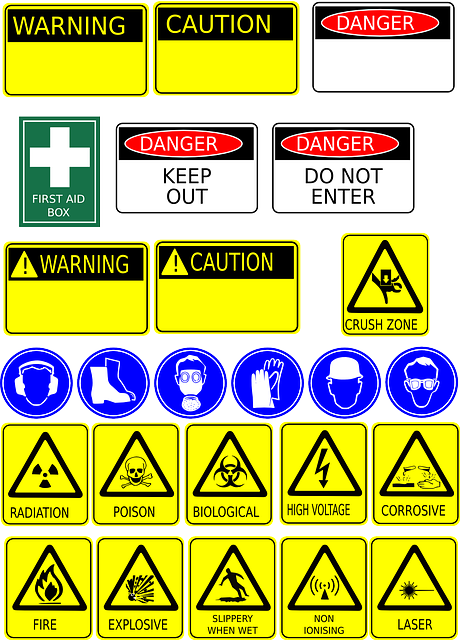Background checks for childcare providers are vital to ensuring child safety and well-being in educational settings. Rigorous screenings involve examining criminal records, employment history, references, and education to identify potential misconduct or red flags. This multi-layered process helps build trust between parents and caregivers, creating secure environments that prioritize the protection of society's most vulnerable members while meeting legal requirements and ethical considerations. Robust background screening practices are crucial for fostering safe, nurturing environments in childcare settings, protecting children's well-being, and maintaining high care standards.
“Ensuring the safety of children in childcare settings is paramount, making comprehensive background screening a vital tool. This article explores the critical role of background checks in identifying potential risks and mitigating misconduct. We delve into the essential elements of a robust childcare provider screening process, including legal considerations and ethical guidelines. By implementing effective practices, early childhood education programs can create safe havens where children thrive.”
- Understanding the Importance of Background Screening in Childcare
- Key Elements of a Comprehensive Childcare Provider Screening Process
- Legal and Ethical Considerations for Background Checks in Early Childhood Education
- Implementing Effective Screening Practices to Foster Safe and Nurturing Environments
Understanding the Importance of Background Screening in Childcare

Background screening plays a pivotal role in ensuring the safety and well-being of children in childcare settings. With numerous interactions between caregivers and minors, it’s crucial to implement rigorous checks to prevent potential misconduct. These screenings serve as a robust defense mechanism against individuals who might pose risks to innocent kids. By thoroughly examining an applicant’s history, including criminal records, previous employment, and references, childcare providers can make informed decisions.
The significance of background checks for childcare providers cannot be overstated. It enables centers and families to create a secure environment. Such checks help identify red flags that might indicate inappropriate behavior or a history of abuse. Proactive measures like these foster trust between parents and caregivers, knowing their children are in capable and trustworthy hands. This process is an investment in the future of our society, safeguarding our most vulnerable members.
Key Elements of a Comprehensive Childcare Provider Screening Process

A comprehensive childcare provider screening process is a multi-faceted approach that includes thorough background checks to ensure the safety and well-being of children in their care. The key elements of such a process involve verifying the provider’s identity, criminal history, and any relevant qualifications or certifications. Background checks play a pivotal role in this verification, allowing caregivers to be meticulously evaluated for potential red flags or disqualifying factors.
In addition to criminal background checks, a robust screening procedure should encompass education and experience reviews, reference checks from previous employers or clients, and direct observations of the provider’s interaction with children. This holistic approach ensures that not only are any red flags in their history identified, but also that they possess the skills, knowledge, and genuine passion necessary to provide quality childcare.
Legal and Ethical Considerations for Background Checks in Early Childhood Education

Background checks for childcare providers are a critical aspect of ensuring the safety and well-being of young children in early childhood education settings. From a legal perspective, many countries have implemented regulations mandating comprehensive background screening as a preventive measure against potential misconduct. These laws often require checking criminal records, past employment history, and any relevant certifications or qualifications to protect vulnerable kids.
Ethically, the primary goal is to create a secure environment where children can learn and develop without concern for abuse or neglect. Caregivers and educators have a significant impact on young minds, and thorough screening processes act as a safeguard against individuals with malicious intentions or a history of inappropriate behavior. It’s essential to balance privacy rights while adhering to legal obligations to maintain the highest standards of care in childcare facilities.
Implementing Effective Screening Practices to Foster Safe and Nurturing Environments

Implementing robust background screening practices is a cornerstone in fostering safe and nurturing environments within childcare settings. These checks serve as a critical defense mechanism to ensure that individuals entrusted with caring for children have no history of misconduct or abusive behavior. By thoroughly examining an applicant’s background, including their criminal record, previous employment, and references, childcare centers can make informed decisions about hiring. This proactive approach not only protects the well-being of children but also builds trust among parents, knowing their little ones are in safe hands.
Effective screening goes beyond simply checking boxes; it involves a comprehensive evaluation that considers various factors relevant to child welfare. This includes verifying references, cross-referencing information from multiple sources, and staying updated on local and national regulations related to childcare provider screening. By adopting these stringent practices, childcare providers can create a supportive atmosphere where children can thrive, free from potential risks associated with unethical or dangerous individuals.
